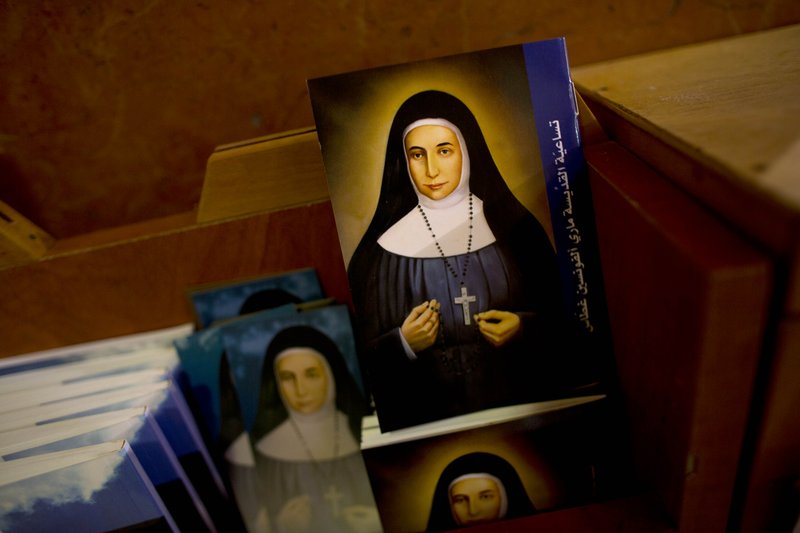JERUSALEM -- The Holy Land's Christians are excitedly preparing for this weekend's canonization of two Arab nuns, bringing some joy to a tiny community that has had little to celebrate in recent years.
Marie Alphonsine Ghattas and Mariam Bawardy, who lived in what was Ottoman-ruled Palestine in the 19th century, will be the first from the region to receive sainthood since the early days of Christianity. They will also be the first Arabic-speaking Catholic saints.
The nuns were born, respectively, in Jerusalem and Ibilin, a town in Galilee in what is now northern Israel, but come from an Arabic-speaking Christian community that has mainly identified itself as Palestinian for many decades. President Mahmoud Abbas, a Muslim, will attend the canonization festivities at the Vatican on Sunday, said Ziad al-Bandak, an adviser on Christian affairs to the Palestinian leader.
"This canonization has a meaning for the whole Palestinian nation," al-Bandak said. "It's a very important thing for Palestinians, whether they're Muslim or Christian."
In the birthplace of Christianity, Christians are a tiny minority, making up less than 2 percent of the population of Israel and the Palestinian territories.
Although they have not experienced the violent persecution that has decimated Christian communities elsewhere in the region, the population has gradually shrunk over the decades as Christians have fled conflict or sought better opportunities abroad.
At such a sensitive time for the region's Christians, celebrations are in full swing. Worshippers filled the church of the Rosary Sisters Mamilla Monastery in Jerusalem a week ago, kneeling down in front of the tomb of Ghattas and holding prayer beads during a solemn ceremony held for the two women. The event opened a period of special prayers and Masses that will continue throughout the summer in the West Bank, Jordan, Lebanon and Israel.
Books, films, songs and hymns are already hailing the canonization, which local Catholic Church officials say is historic.
Bawardy was a mystic born in 1843. She is said to have received the "stigmata" -- bleeding wounds like those that Jesus Christ is said to have suffered on the cross -- and died at the age of 33 in the West Bank town of Bethlehem, where she founded a Carmelite order monastery that still exists.
Ghattas, born in Jerusalem in 1847, opened girls' schools, fought female illiteracy, and co-founded the Congregation of the Sisters of the Rosary. The order today boasts dozens of centers all over the Middle East, from Egypt to Syria, that operate kindergartens, homes for the elderly, medical clinics and guest houses.
The two nuns lived under difficult conditions, facing poverty and sickness while helping those in need. Both are said to have been inspired by apparitions by the Virgin Mary and to have performed miracles -- a requirement for Catholic sainthood.
Sister Alphonsina, a Jordanian nun and member of the Sisters of the Rosary near Bethlehem, said the nuns' canonization should inspire others to lead more spiritual lives.
"We talk a lot about political uprising and I hear people calling for a political uprising, but we as Christians first need a spiritual uprising," she said.
Israel, for its part, has taken a more low-key approach, but will also join Sunday's festivities. The Foreign Ministry said its ambassador to the Vatican and a government official responsible for the country's Christian minority will both attend.
Religion on 05/16/2015
